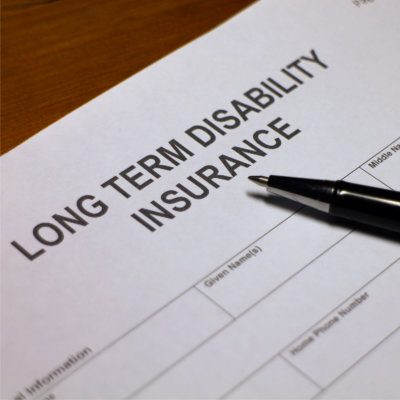The Importance of Medical Evidence to support my Personal Injury Claim
Persons who were injured due to the fault or negligence of another party, may seek compensation for the losses that resulted from their injury, which are referred to as ‘damages’. Damages have both a monetary and non-monetary component. For example, a car accident victim who suffers soft-tissue injuries to their back, neck and spine, may not be able to work for an extended period, and chronic pain may interfere with their ability to complete many activities as well as their enjoyment in life. In such a case, the injured person has suffered both financial losses, as well as a loss in their quality of life which cannot be directly measure monetarily.
Financial losses that are commonly recovered in injury claims include lost income while the injured person was wholly or partially unable to work, medical and rehabilitation expenses, cost of attendant care, out-of-pocket expenditures, home maintenance and housekeeping expenses, and expenses incurred by family members. Rehabilitation costs may include, for example, physiotherapy, chiropractic treatments and/or pain treatments. Non-monetary or ‘general’ damages, on the other hand, involves pain and suffering, or the loss of enjoyment in life, that may result from the change in circumstances caused by an injury.
The fundamental component in proving that you suffered losses as a result of any injury, for which you deserve to be compensated, rests on medical evidence that supports the severity and debilitating effects of the injuries. Beyond establishing that the defendant’s negligence caused your injury, medical evidence, including expert medical opinion, treatments and assessments, is the foundation of a personal injury case.

Medical evidence includes medical reports, assessments, medical tests, and expert opinion provided by health care professionals who are treating or have assessed the accident victim. Medical records provide documentation and assessment of a person’s progress and recovery, complaints of discomfort and pain, limitations and disability, and the impact of injuries on a person’s ability to function and quality of life.
Due to the importance of strong medical evidence, it’s vital that an injured person participates in regular and ongoing medical treatment, provided by appropriate medical practitioners (depending on the nature of their injuries). If, for example, an accident victim is claiming they are suffering from a psychological injury such as depression, post-traumatic stress syndrome or anxiety, then they should be seeking the care of a psychologist or psychiatrist. The documentation of your doctor's diagnosis, treatments and prognosis will be key evidence in your claim.
It’s also important for patients to follow their physician’s advice throughout their care, assessment and recovery, to show that they were doing everything possible to aid in their own recovery (rather than acting in a manner that could be construed as preventing or slowing their own recovery).
Many accident victims seek non-pecuniary damages for pain and suffering in their claim. This is not surprising when we consider that injuries suffered in a car accident or another traumatic incident often have a significant impact on an accident victim’s life, whether due to physical impairments, psychological injuries or pain.
However, in order to be eligible for non-pecuniary damages, when injuries arise from a motor vehicle accident, a plaintiff must prove, on a balance of probabilities, that their injuries meet the threshold of a permanent and serious impairment, or a permanent, serious impairment of an important physical, mental or psychological function. Accordingly, while a jury is making a determination on the amount of damages to be awarded to a plaintiff in a personal injury case, a defendant will often bring a 'threshold motion' which requires the judge to rule on whether the plaintiff’s injuries are “important, serious and permanent”. And, a judge’s decision on this matter rest on the strength and persuasiveness of the medical evidence.
When a civil suit for damages goes to trial, in addition to medical reports that support the plaintiff’s claim, a case can also rest on the credibility of the medical experts who are testifying on your behalf.
In a trial, the medical experts for the opposing sides sometimes offer differing opinions on the seriousness and impact of the plaintiff’s injuries. In such circumstances, the medical expert witness whose testimony appears objective, professional and unbiased, and who has carried out a proper assessment of the plaintiff, typically carries the most weight with a judge.
For example, in a civil suit that arose after a woman was injured in a car accident and developed chronic pain syndrome, Dahrouj v. Aduvala, the judge found the medical expert for the defendant to be more credible largely because his opinions were based on an in-depth assessment of the plaintiff. By contrast, the plaintiff’s expert was an orthopaedic surgeon who only assessed her for 45 minutes and based most of his conclusions on the plaintiff’s complaints of pain. The judge’s assessment of the opposing medical experts played a role in his finding that the plaintiff’s injury was not 'serious, permanent and important' and therefore, did not meet the threshold for non-pecuniary damages.
At Stevenson Whelton MacDonald & Swan, we have strong connections with medical practitioners in Oakville and the surrounding municipalities, which is both helpful in a client's recovery and in developing the most appropriate and compelling medical evidence for a client’s injury claim. Call Stevenson Whelton MacDonald & Swan today if you were injured and are seeking compensation for your losses.
